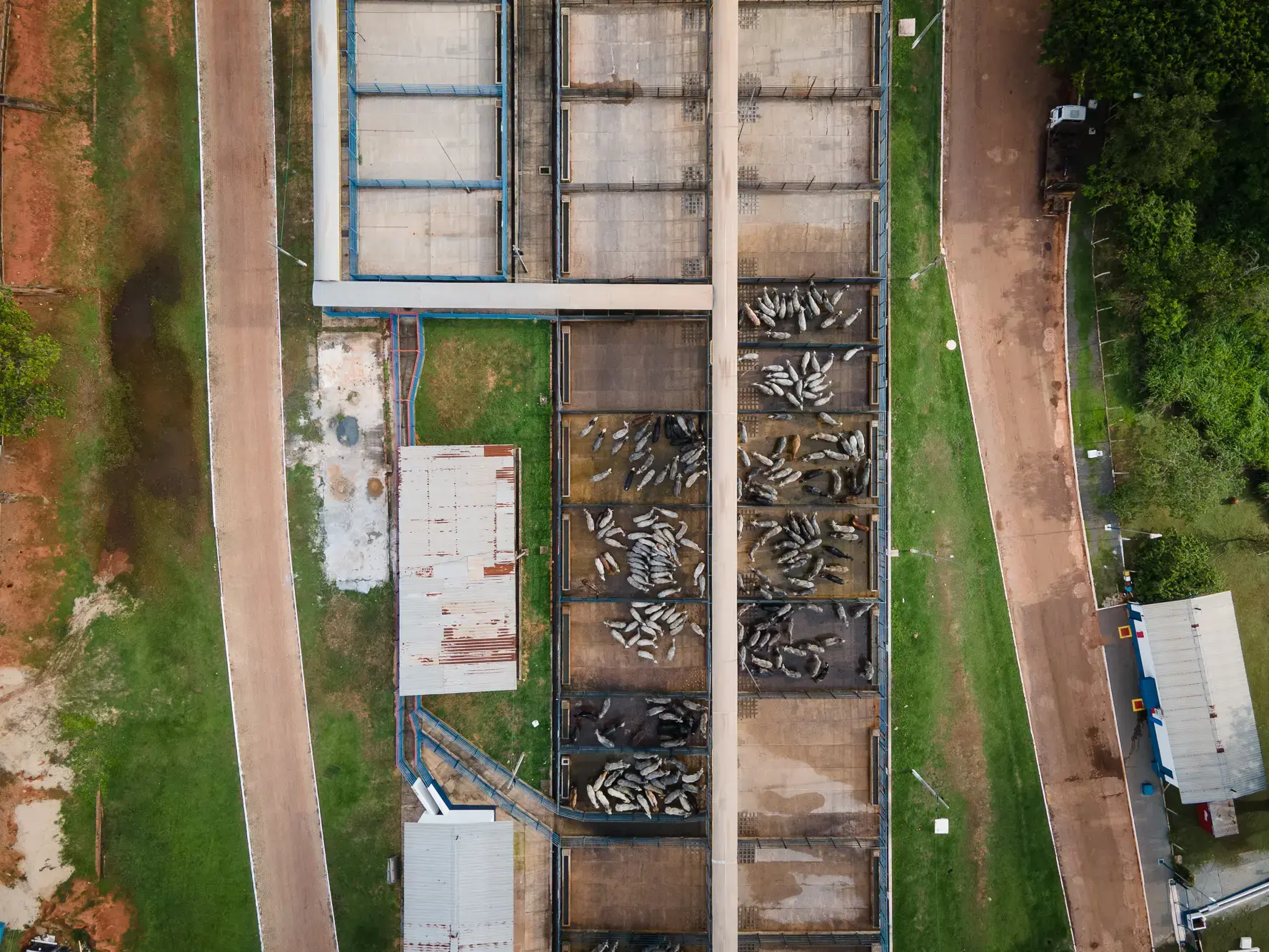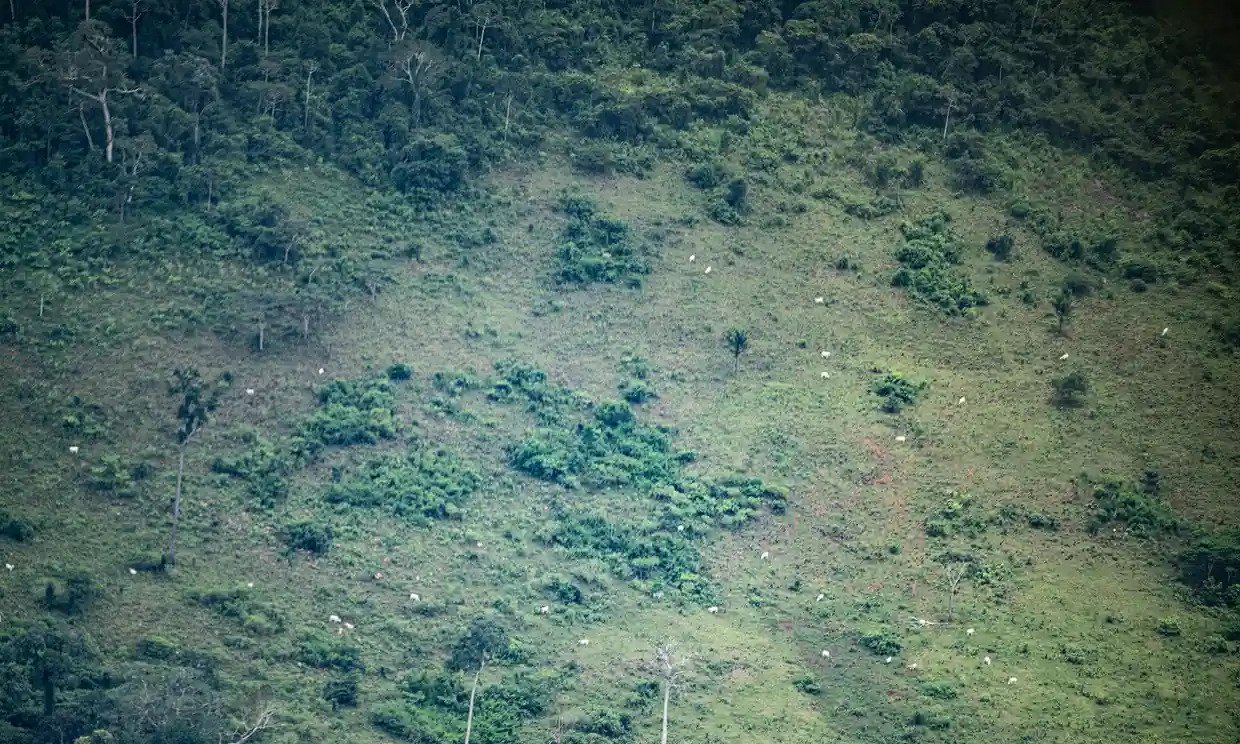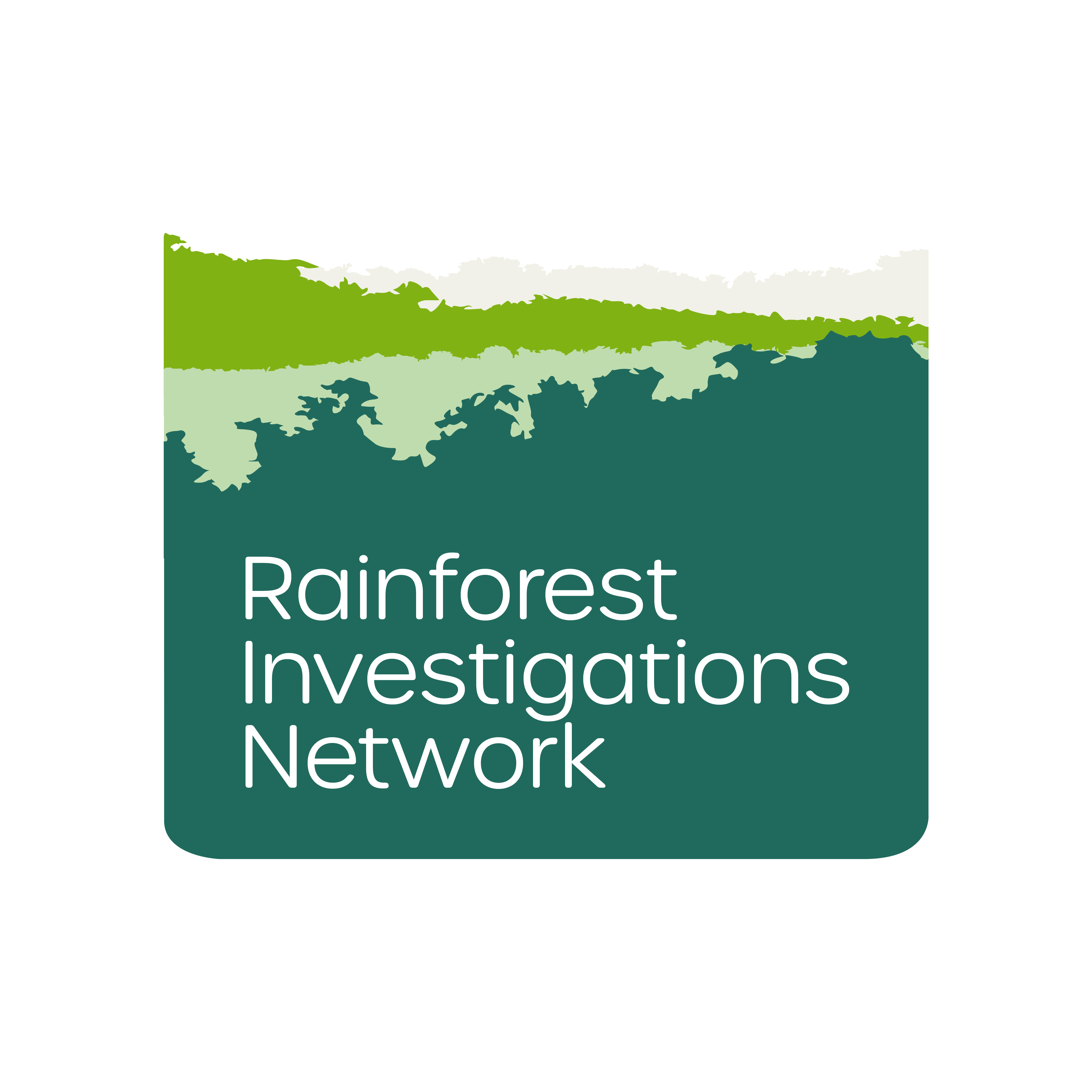
New Investigation Ties Collagen to Deforestation
Para ler em português, continue rolando.
We often say that a good reporter has a nose for the news. This journalistic cliché may never have been more accurate than in the story we published this week through the Pulitzer Center’s Rainforest Investigations Network (RIN). As we investigated the global supply chain for collagen, a product whose appeal in the health and wellness market is growing exponentially, we found a lot of stinking evidence along the way.
When we visited cattle ranching by-product processing plants in the Brazilian Amazon and Cerrado, the stench these plants spewed and the copious evidence connecting collagen to rainforest deforestation, often threatening nearby Indigenous communities, surprised us.
The direct connection between destruction and this food supplement endorsed by celebrities and influencers in the United States and Europe is environmentally unfriendly cattle production. Our report shows how companies like Nestlé buy the by-product produced with cattle from farms with records of illegal deforestation.
The supply chains for Brazilian bovine collagen are complicated, with numerous middlemen involved in procuring and processing. Until now, little was known about its dynamics, and environmental and social impacts went unchecked.
Our team spent seven months working on this investigation, which involved researching companies' documents and public records, conducting multiple interviews, and going on reporting trips to four Brazilian states to collect indisputable evidence of systemic wrongdoing.
The stark contrast between the glamour of the beauty and wellness industry and what we found on the ground kept us going. We realized that even the forthcoming legislation in the United Kingdom and in the European Union to tackle deforestation fails to consider collagen production.
Establishing these links is only possible thanks to initiatives like the Rainforest Investigations Network, where Fellows from 10 countries receive editorial support and training in environmental investigations. Showing the full scale of a supply chain requires collaboration, which is why this investigation led by The Bureau of Investigative Journalism—an ally of RIN—has been embraced by other media outlets such as The Guardian and ITV in the U.K., and O Joio e O Trigo and UOL in Brazil.
In the face of questions and the evidence presented in the reports—including a seven-minute, prime-time segment on British television—Nestlé announced that its Vital Proteins brand would no longer do business with suppliers from the Amazon region.
Keeping forests standing may be one of our most powerful weapons in fighting the climate crisis, our generation's biggest challenge. In the words of Glenn Hurowitz, founder of the NGO Mighty Earth, “the beef industry’s sustainability efforts don’t just need a little collagen, they need a full-on face lift.”
Dizemos frequentemente que um bom repórter tem faro para as notícias. Este clichê jornalístico talvez nunca tenha sido tão preciso quanto na série de matérias que publicamos na esta semana através da Rainforest Investigations Network (RIN) do Pulitzer Center. Enquanto investigávamos a cadeia de fornecimento global de colágeno, um produto cujo apelo no mercado de saúde e bem-estar está crescendo exponencialmente, encontramos muitas provas mal-cheirosas ao longo do caminho.
Quando visitamos plantas de processamento de subprodutos da pecuária na Amazônia e no Cerrado, nos surpreenderam o fedor dessas fábricas e as copiosas evidências que ligam o colágeno ao desmatamento, muitas vezes ameaçando as comunidades indígenas.
A conexão direta entre a destruição da Amazônia e este suplemento alimentar incensado por celebridades e influenciadores nos Estados Unidos e na Europa é a produção de gado danosa ao meio ambiente. Nossas reportagens mostram que empresas como a Nestlé compram o subproduto produzido com gado de fazendas com um passado de desmatamentos ilegais.
A cadeia de fornecimento de colágeno do bovino brasileiro é complicada, com inúmeros intermediários envolvidos na aquisição e processamento. Até agora, pouco se sabia sobre sua dinâmica. Os impactos ambientais e sociais não eram controlados.
Nossa equipe passou sete meses trabalhando nesta investigação, que envolveu a pesquisa de documentos e registros públicos das empresas, realizando múltiplas entrevistas, além de viagens a quatro estados brasileiros para coletar provas incontestáveis de irregularidades sistêmicas.
O forte contraste entre o glamour da indústria da beleza e do bem estar e o que encontramos nos territórios nos manteve determinados. Percebemos que mesmo a próxima legislação no Reino Unido e na União Européia para combater o desmatamento falha em considerar a produção de colágeno como uma ameaça.
O estabelecimento desses vínculos só é possível graças a iniciativas como a Rainforest Investigations Network, onde bolsistas de 10 países recebem apoio editorial e treinamento em investigações ambientais. Mostrar a escala completa de uma cadeia de fornecimento requer colaboração, razão pela qual esta investigação liderada pelo Bureau of Investigative Journalism — um aliado da RIN — foi abraçada por outros meios de comunicação como The Guardian e ITV no Reino Unido, e O Joio e O Trigo e UOL no Brasil.
Em face das perguntas e das evidências apresentadas nas reportagens — incluindo um segmento de sete minutos em horário nobre na televisão britânica — a Nestlé anunciou que sua marca Vital Proteins não faria mais negócios com fornecedores da região amazônica.
Manter as florestas em pé pode ser uma das nossas armas mais poderosas para combater a crise climática, o maior desafio de nossa geração. Nas palavras de Glenn Hurowitz, fundador da ONG Mighty Earth, "os esforços de sustentabilidade da indústria de carne bovina não precisam apenas de um pouco de colágeno, eles precisam de um lifting facial completo".
Saudações,


Impact
The Honolulu Civil Beat's Pulitzer Center-supported project, WWII: Collateral Damage, 80 Years On, by grantee Thomas Heaton won a 2022 Best in Business Award from the Society for Advancing Business Editing and Writing (SABEW) in the international reporting, small division category.
“At a time when inequities suffered across the global south matter more than ever, this work has both human and economic significance,” the judges commented. “Its insights into power and money dynamics make it a must-read for anyone with business or economic interests in the region. Well-written and photographed, the series is grounded in deep on-scene reporting, in a remote location by any measure.”
Additionally, the MidSouth Emmys announced Center-supported film State of Change as winner of the documentary, topical category. Produced by grantees Frank Graff, Justine Schmidt, Rossie Izlar, Melissa Salpietra, Michelle Lokter, and Paula Edelson, the film “personalize[s] the impact of climate change, provide[s] details about the science of challenges, [...] and provide[s] optimism that solutions are in reach.”
This message first appeared in the March 10, 2023, edition of the Pulitzer Center's weekly newsletter. Subscribe today.
Click here to read the full newsletter.












